Well the first is obvious, the name of your company and that this is an application you can add address and phone number if you would like or if there are more than one location of your business.
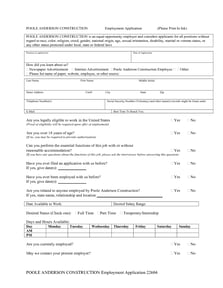 Image taken from Poole Anderson Construction, online application
Image taken from Poole Anderson Construction, online application
Instructions to the applicant such as to fill out the application in ink, I would add blue ink (blue is the accepted legal color, not black which can be later said to be a copy or forgery, blue shows it is an original)
A statement that your business is an equal opportunity employer and follows all the laws, I will not list the statement in full here.
Not to attach a resume unless it is to become part of the official application, but that all information still must be filled out in total on the application even if listed on their resume. This way it is in the hand writing of the applicant and they cannot say later you attached a false resume to their application, or they did not know a mistake was listed on it.
When asking them to fill out their name, make sure it is their legal name and it is fine to also ask for other names they have been known as, this can be helpful when running a back ground check, or the name that they would like to be addressed by if hired.
Ask for their current address and to list any address they have lived in the past 3-5 years, also good for a background check.
You probably already know the things you can not ask on an application or in an interview like, marital status, age, whether they have children, or if a women, plan on having children, their religion etc…
But there are things you can ask for as ways around asking these questions:
By having them list their birth date and to mark a box stating that they are of legal age (18 or 21) to operate certain equipment, for insurance reasons. Only once hired can you ask for a list of their dependents for reasons such as for insurance, not before on an application. But they might ask you in an interview about your insurance coverage and you should only state the individual policy price not covered or paid in part by you the employer, which might have them ask you ‘What would the family rate be?’ I would then remind them that question should wait until further along in the hiring process. This comes once you are formally offering them the position and they get to learn those answers before they deciede if they will accept.
As long as they ask the question that gives you this information you did not ask for you are safe. But you must be careful not to indicate that any of the unasked information might have been or was used in the hiring process for that job. Never make notes on the application itself during an interview, use a separate piece of paper. You can ask if they can legally work in the United States and require proof later before hiring, if they have been convicted of a felony or misdemeanor, have points on their driver license etc. these are part of public record. You can ask if there is any day they can not work or would rather not work. For instance have a list of Sunday thru Saturday on the application with instructions for them to circle or mark the days of the week they are available to work. Same with times of day they can work. Of course you can also include in the job description the days and times that are required for the job they are applying for and if they will not work on a certain day (due to their religion) they are the one making themselves unable to be hired, not you.
Ask for not only the standard list of past employers, business references as well as personal and their education but industry specific certifications as well and any training they have already received. You should also state that copies of these certifications are to be provided if hired to be placed in their file. These can be very useful to save you money for you as a business and for marketing. You can also state that they must be able to be bonded if you would like. This also can be good for you for insurance reasons as well as in marketing your business.
You can ask them to list the languages they speak and if they can read and understand English this is to be sure they will be able to read and understand signs, labels and vebal instructions during work.
You may want to ask if they have applied before, many states do not require you to keep or consider for new hire people from past application times, check with your state as to how long this may be.
You can ask if they know or are related to anyone current or former person that has worked for your business.
You can ask if they are physically able to perform the work as discribed in the job discription or if they have not been given one, list peramitors here; able to lift up to 50lbs, twist and bend at the waist so many degrees (range of motion), able to hold object over head for at least two minutes, etc.
You can ask if they have reliable transportation but unless they are applying for a position where they will be required to drive one of your vehicles you can not ask for a MVR, that is for insurance purposes only.
You must include a statement at the bottom of the application just before the signature line that tells the applicant that all areas must be filled out completely, nothing left blank, must be accurate and may be followed up on and any lack there of can be used as reason not to except them as a candidate for employment, while an employee or for termination if they become an employee and any information later are found to be false.
Make sure your application is as detailed as you need it to be, do not worry about it not fitting on one page front and back like a store bought one. Some of the best jobs I ever had, had applications 4-5 pages long. And the information you need to be sure the applicant will work is much different than one wanting to work at a fast food joint or movie theater.
You might want to add a section next to each past job asking for a description of the work they did at that job, ask for the name of a supervisor or co-worker that is still there with phone number if different then the main number, and ask why they left. If there are gaps in education or employment ask what they were doing for that time even if it was not work in the current field they are applying for. Answers to these may give you a clue as to other aspects that could affect their job performance with your company or reasons why they would make the best fit. Any negative information you find that may cause you to not consider the candidate should be brought up to the candidate so they can challenge the information. If not and you do not hire them, and they later find out what you where told was miss information, they could come back legally against you in some instances.
You can ask why they are applying, what they have liked or not liked during previous employment. But these can be questions you can also bring up during the interview process and not have listed on the application.
For some of you that have businesses in a state like GA, a right to work state, the employer has right to hire/fire laws and you may not have to give any reason as to why you did not choose someone so long it is not one of the illegal ones, but for many of you the employee holds more cards than the employer does in this process and you have to make sure you stay on the right side of the law. As with any of our blogs the information given here are general guidelines and you should check what the laws are currently in your state. Tomorrow we start on the Handbook.
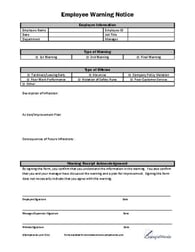
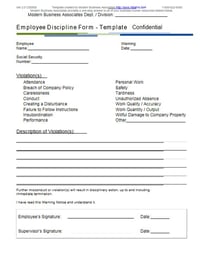
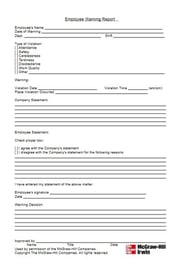


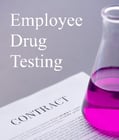
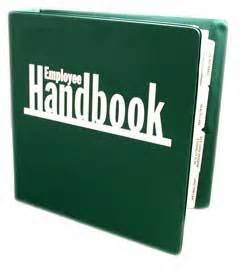

 Image taken from Poole Anderson Construction, online application
Image taken from Poole Anderson Construction, online application
